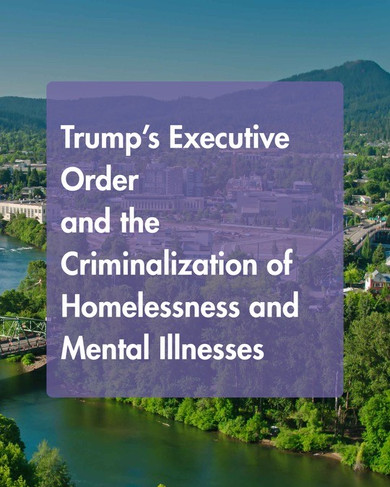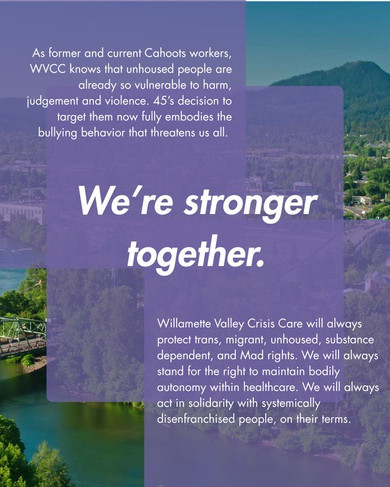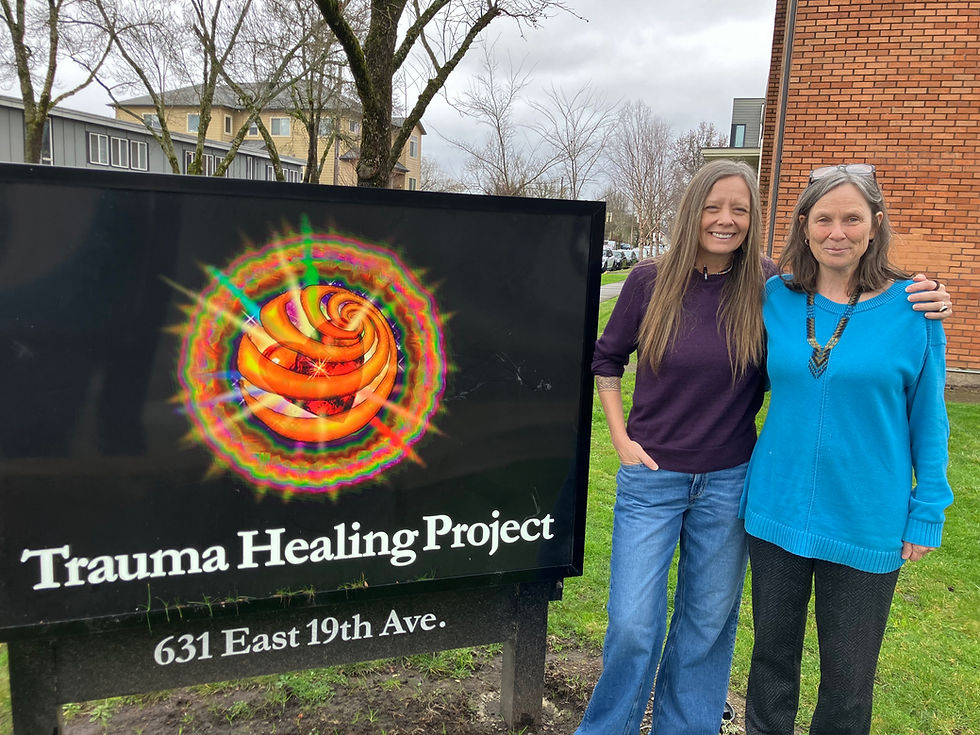Responding to Executive Order "Ending Crime and Disorder on America's Streets"
- WVCC

- Aug 12, 2025
- 3 min read

We want to share a powerful statement from the Atlanta Policing Alternatives and Diversion released August 1 in response to Trumps executive order: "On Thursday, July 24, the White House released an Executive Order titled “Ending Crime and Disorder on America’s Streets,” which scapegoats people without homes and promotes criminalization, punishment, and forced treatment and detention as solutions to homelessness. PAD joins a groundswell of organizations that reject this mean-spirited attempt to target people whose basic human rights have not been met. Federal funding cuts to housing, recovery, and health services will further erode the threadbare safety net our communities depend on. But the spirit of this Order is embedded in many of the policies that are already in effect in cities and states around the country. The disregard for the autonomy and dignity of people who are unhoused or have unmet mental health or substance use needs is evident in the policies that mandate medication, make involuntary civil commitment easier, use the threat of jail to force compliance with treatment, and demand abstinence as a condition of housing.
These coercive approaches have been around for a long time and so has the movement of impacted people who have challenged them. We honor the wisdom of people in the peer recovery movement, the disability justice movement, and the harm reduction movement in affirming our faith in recovery, in the power of healing in community, and the inherent value of each and every person. We refuse to participate in the dehumanization that criminalization and coercion require.
Many of us have ourselves experienced homelessness, substance addiction, mental health emergencies, or incarceration, or have felt the reverberating effects of these challenges in our lives or families. Many of us know what it means to navigate hostile and bureaucratic systems in order to access housing, healthcare, or assistance. When our teams respond to people who are in crisis, we know that the larger crisis we are being asked to address is in fact the failure of our systems to effectively provide for our communities.
When resources are not allocated as they should be, coercion offers a false solution. Can we force people into the limited resources that do exist? If we feel overwhelmed by the level of trauma that people have experienced and how that shows up in their behavior, can we force them to take medication? When we don’t have housing, we do somehow always have a jail.
But there is a deep cost to just trying to make people disappear. We know this cost well in Georgia, home of the Supreme Court’s Olmstead decision that effectively freed millions of disabled people from forced institutionalization after Lois Curtis brought her case to court. We know this cost well in Atlanta, where in preparation for the 1996 Olympic Games the city built the Atlanta City Detention Center and then filled it up with people arrested on new low-level violations designed to sweep poor and unhoused people out of the parks and streets of downtown.
We do not have to repeat history. Even in scarcity, we improve wellbeing by honoring people’s autonomy and dignity and offering assistance at the speed of trust. And even when we don’t have the ability to heal someone’s deep wounds, we have the choice not to deepen those wounds by how we respond to them. Every situation starts with a human being, and we must engage with people as people instead of people as problems. We need to be curious about their stories, their concerns, and their needs in order to understand what got them there and what will be most helpful to them. If we truly want to achieve safety and wellbeing in our communities, we must invest in the safety and wellbeing of the people on our streets












Comments